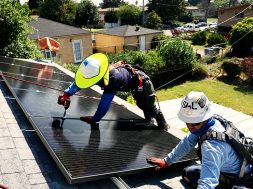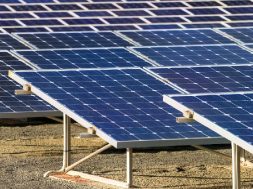
HNI interest in solar rooftops wanes as big boys enter
Few years back, solar rooftops was emerging as a new attractive option for high net worth individuals (HNI)s in the country. However, this may be now fading as HNIs make way for bigger players to dominate the segment. Industry players from the solar rooftop space point out that one reason for the waning interest is that tax benefit on accelerated depreciation is no more attractive. “There was a lot more interest from HNIs, but it is now waning,” said Nishant Agarwal, Head of Products, Investment Advisory and Family Office, ASK Wealth Advisors. 100% accelerated depreciation was available on solar plant installations in the first year. “This which had gathered eyeballs in the HNI community, which looks at solar power plant as a “financial” product,” said Nikunj Ghodawat, Head Finance at CleanMax Solar.
This, however, is now changing.
“The accelerated depreciation was recently reduced to 60%. Further, the 10-year tax holiday on the sale of solar power available previously under section 80ia has been withdrawn from this financial year,” Ghodawat explained. Not just tax benefits, HNIs are also facing issues at the execution and maintenance level. “It is difficult to execute. Interest is going down as they have not been able to find a credible partner to manage these assets,” Agarwal added. There is also growing competition making it a big boy’s play and not an attractive option for the HNI community. “Five years back, when the solar industry was starting out, there were smaller investments being made in 5mw to 10 mw projects, but that space has now been crowded with people who have access to low cost of capital and make better returns on those same projects. The same story is now being repeated in the solar rooftop space,” said a solar energy consultant.
Others add the pay-back period for industrial and commercial rooftops continues to remain longer, proving as a deterrent for HNIs to look at this asset. Further, solar rooftop projects are likely to provide higher margins when looked as a platform model and not as a standalone asset, consultants added. However, companies like Cleanmax Solar and Tata Cleantech Capital are optimistic HNI interest in the residential solar rooftop space will remain. “HNIs are likely to dominate the residential segment where the solar system size is much smaller vis-à-vis Industrial and Commercial segments,” said Manish Chourasia, managing director of Tata Cleantech Capital.
Certain others expect in a low-interest economy scenario, solar rooftops may continue to interest HNIs in the hope of better returns. “While the benefits available for solar as a financial product have been reduced, the interest amongst HNIs still remains due to the low-risk profile of solar as an asset class, and long tenor, high yield nature of the investment, which, HNI investors find very attractive in a falling interest rate scenario. Also, the reduction in module prices and higher efficiency of solar cells has helped to offset the reduction of tax benefits,” said Ghodawat.
Other policies like the net-metering policy are expected to give a further push to solar rooftop projects. Chourasia from Tata Cleantech pointed out, “Growth in rooftop projects is primarily driven by commercial and industrial consumers in states like Delhi, Maharashtra, West Bengal, AP etc. wherein the DISCOM tariffs for these customers are very high and also have a very good net metering policy in place.”














